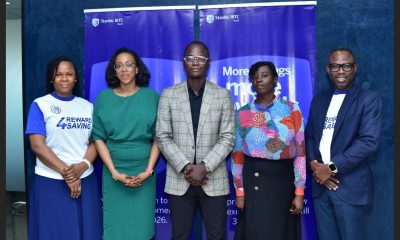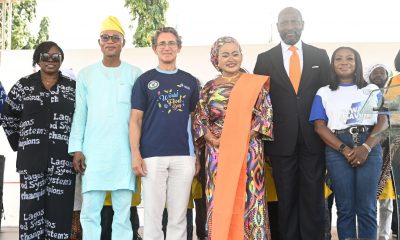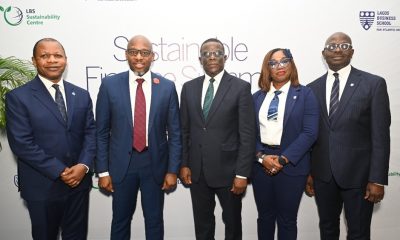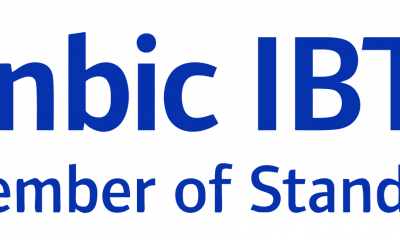Banking
CSI Key to Our Business Sustainability—Stanbic IBTC Boss
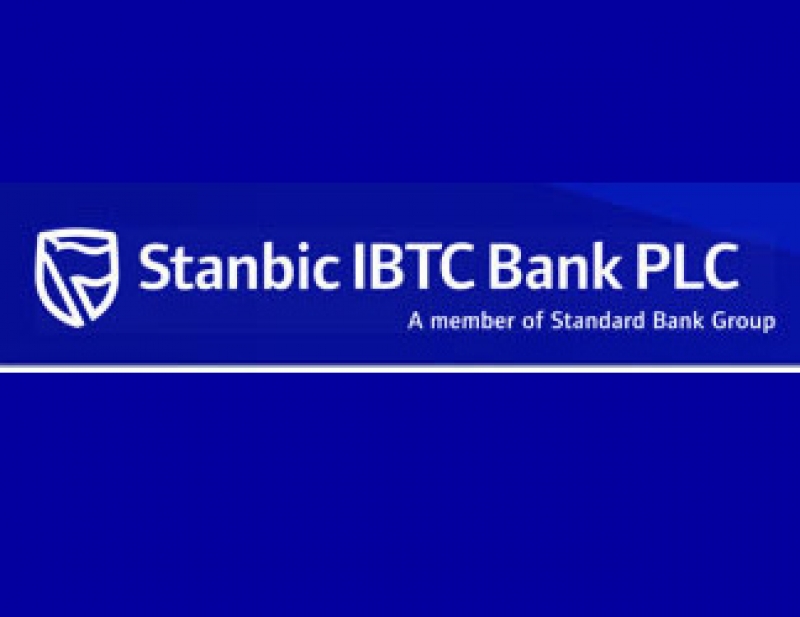
By Modupe Gbadeyanka
In order to help impact their operational environment, businesses deploy the Corporate Social Investment (CSI) tool to achieve this.
In this interview, the Group Chief Executive of Stanbic IBTC Holdings Plc, Mr Yinka Sanni, examines CSI practice in Nigeria and how Stanbic IBTC deploys its CSI as part of the financial institution’s larger sustainability strategy for socioeconomic integration of the under-served in the society as well as a tool for creating shared values. (Excerpts)
How does Stanbic IBTC position corporate social investment (CSI)?
Most organisations interpret and implement CSI as best suits their overriding corporate goals. However, to borrow a leaf from the United Nations Industrial Development Organisation (UNIDO), we at Stanbic IBTC see CSI as a management concept whereby we integrate social and environmental concerns into our business operations and interactions with our stakeholders. CSI is the way through which Stanbic IBTC as a socially responsible company achieves a balance of economic, environmental and social imperatives.
At Stanbic IBTC, we are aligned to Standard Bank Group CSI focus which uses CSI to enhance our brand reputation, grow new markets, increase employee proposition and present us as socially responsible in a way that makes business sense. We share in the Group’s ideology where CSI is key and the watchwords are development, support and community upliftment.
Our CSI pillars in Stanbic IBTC are Education, Health and Economic Empowerment
In your opinion, are corporate organisations in Nigeria doing enough in terms of CSI or do you recommend a paradigm shift in attitude?
I believe that many organisations already see the value in CSI and are doing quite a bit of social investments. Nonetheless, when you examine the peculiarity of our operating environment, where there exist wide gaps between the different socio-economic classes, you’ll understand we could never do too much and that there’s always ample opportunity to do more, especially among the lower cadre of the socio-economic spectrum.
I mean those who sit at the bottom of the pyramid. I would advise that companies make a conscious and concerted effort not just to finance some add-on philanthropic things, but to change their strategies and business models and really develop and incorporate structured CSI approach into their management accounting and control systems. What is prevalent is that businesses have marvellous ambitions related to CSI. The question, however, remains how committed they are to actualizing or sustaining these ambitions and more importantly how they even plan to accomplish these ambitions.
Are your employees usually part of your stakeholder engagements?
Absolutely, at Stanbic IBTC our vision recognizes that our people are our most important asset, which makes it imperative to inspire and engage employees in ongoing CSI efforts to make a meaningful impact. We see our employees as our partners in all our sustainability initiatives. By doing this, not only do we succeed in getting their active involvement, but also benefit from the fact that employees gain a lot of valuable skills and experiences which make them a better asset to our organization.
The sustainability of an idea needs everyone in every title to be aligned to our mission of moving forward. We believe our people and culture will determine our success in executing our strategy, which includes our CSI.
Our business philosophy is anchored on and vested in building relationships and trust with our clients/customers, employees, shareholders, regulators, communities and other key stakeholders. Our values underpin our legitimacy and are intended to reinforce the trust our stakeholders have in our organisation. As such, we endeavour to carry along and get the buy in of all our internal and external stakeholders.
In fact, we have a culture of staff involvement and participation in our social investment initiatives which means that our staff are not only part of the activation but the entire process of identifying key areas where we choose to support, collaborate or invest. We try as much as possible to encourage our staff to either as teams or units voluntarily contribute and participate through departmental CSI activities which initiative has been hugely successful over the past year. Through staff CSI volunteerism or contribution alone, we have invested over a N100million towards various charitable causes under the health, education and economic empowerment portfolios year-to-date.
How important is corporate social investment to Stanbic IBTC’s business?
I believe it would be difficult to put a value to the importance of CSI to us as an organisation. Primarily because CSI is key to the sustainability of our business just as the support of all our stakeholders underpins our sustainability. This inter-dependence requires that we conduct our business responsibly to create value in the long-term interests of society. For us at Stanbic IBTC our mission is to continue to contribute to the socioeconomic development of the nation in a way that is consistent with the nature and size of our business operation. This is why we provide end-to-end financial services and products responsibly, bearing in mind the needs of society, our customers, our staff, our shareholders, the environment and future generations.
We do pride ourselves as a socially responsible corporate citizen of our country because CSI is an integral part of our DNA at Stanbic IBTC and Standard Bank Group. Standard Bank has over the years built reputation for continental support of arts and culture as well as sports development.
Our commitment to investing in corporate social projects and initiatives is something we take just as seriously as adhering to the highest corporate governance principles and operating in line with global best practice. At Stanbic IBTC, CSI isn’t a publicity platform. We see CSI as a duty. Like I mentioned earlier, our CSI falls under three prongs of health, education, and economic empowerment.
How do you select the initiatives and projects you undertake for your CSI and what model or models do you use for implementation?
Generally, our CSI initiatives must fall under any of the three pillars of health, education and economic empowerment. The model we’ve used and that has worked for us overtime is investing in projects we believe have the greatest impact, widest reach, and highest sustainability ratio and ensuring implementation with reputable, competent and reliable partners. We, however, have carried out several other projects like vaccination against hypophosphatasia (HPP), education materials donation, public school facility renovations, safety equipment donations, like safety helmets, water projects, as well as staff volunteerism initiatives I talked about earlier which we undertake directly. Just to mention that we recently donated relief materials worth millions of naira to alleviate the living conditions of our brothers and sister in Benue State and its environs who were devastated and displaced as a result of the flooding in that region.
Tell us about the project you refer to as your flagship CSI initiative “Together For A Limb” and why you organise the annual walk?
Thank you very much for that question. Having over a long period of time channelled our CSI on projects under both education and economic empowerment pillars of our CSI aegis, we decided it was time to revisit our intervention and shift focus back to the health sector, which explains why we decided on sponsoring and fitting children with limb loss with prosthesis. Which is why in the last two to three years Stanbic IBTC has consistently sponsored the donation of prostheses to some children living with limb difference, otherwise referred to as amputees.
We understand how challenging it must be for the parents and guardians of these children, especially considering the high cost of acquiring these prostheses and of course the value it would bring to the daily lives of these children. In addition to fitting the children with prostheses, Stanbic IBTC is also giving out Education Trust to the beneficiary children courtesy of our Trusteeship subsidiary.
We did not stop at that. To help raise public awareness for amputees, victims of terror attacks and other children who have limb differences or have lost limbs due to trauma, mismanaged injuries, accidents and, occasionally due to congenital issues, and create shared values in the community, Stanbic IBTC on Saturday, 14 November 2015, organised a Walk tagged ‘Out For A Limb’ in Lagos, chaired by the First Lady of Lagos State, Mrs. Bolanle Ambode. This was the very first edition and the walk featured management and staff, esteemed customers and friends of Stanbic IBTC and other well-meaning Nigerians. Our sincere gratitude go out to all our stakeholders who came out en-masse to join us in walking for a good cause. We are also forever grateful to Her Excellency, wife of the Executive Governor of Lagos State, Mrs Ambode, for her motherly love, support and guidance in identifying with our quest to raise awareness for amputees and help bring succour to underserved children who live with limb differences from the very start of the project.
Owing to just how committed Stanbic IBTC is to CSI, and most of all, this particular initiative which coincidentally is our adopted signature CSI project. The second edition, which held on Saturday, 24 September 2016 in Abuja, and which had now been rechristened ‘Together 4 A Limb’ which was more impactful.
Essentially because we decided to expand the scope of beneficiaries to include underserved children victims of the Boko Haram insurgency which has plagued the northern region of the country as some of the primary beneficiaries of the programme.
A 3-kilometre charity walk aimed at raising awareness and awakening public consciousness of children without limbs was flagged off by the Guest of Honour the First Lady of Nigeria, Mrs. Aisha Buhari, who was ably represented by the wife of the Zamfara State Governor, Hajiya Asmau Yari.
As is our practice and as part of the package, education trust fund worth millions of naira was awarded to each of the eight beneficiary children whom we had successfully fitted with artificial limbs. Six of the eight children beneficiaries were actually present at the charity walk and were presented cheques by Hajiya Yari while two others were presented at a separate ceremony. Five children had benefitted from the initiative in 2015 and received education trust fund and prostheses, which brought to 13 the number of children beneficiaries so far. In growing these numbers this year, preparations are in top gear to host the third edition of the initiative. We are currently, fitting and carrying out rehabilitation, as we are already preparing another set of six children who will join the growing list of beneficiaries of the initiative. These six children will be officially unveiled during the walk and presented with cheques in the form of education trust fund to guarantee their educational growth and development.
Banking
CIBN to Back ACAMB on Professional Development, Industry Advocacy

By Modupe Gbadeyanka
The Chartered Institute of Bankers of Nigeria (CIBN) has promised to support the ambitious plans of the Association of Corporate and Marketing Professionals in Banks (ACAMB).
At a meeting between the leaderships of the two organisations on Tuesday, the president of CIBN, Professor Pius Deji Olanrewaju, said it was impressed with the capability development and the undergraduate mentorship schemes of ACAMB under its leader, Mr Jide Sipe.
The CIBN chief commended the forward-thinking vision of the group, saying it had raised standards across Nigeria’s banking sector.
“ACAMB’s support has given CIBN and the banking sector brand equity,” he said, praising the association’s record in reputation management. recalling ACAMB’s role in addressing crises within the sector, describing the partnership as strategic and beneficial.
He further pledged support for ACAMB’s 30th anniversary in September 2026, its AGM, and other programmes, including fundraising initiatives.
“I want to assure you that everything you have presented today has been clearly noted and will be acted upon.
“We are fully committed to working closely with you so as to translate these discussions and vision into measurable progress. Our shared goal is to strengthen the sector, protect its reputation, and enhance its public image in a meaningful and lasting way.
“This meeting discussed various initiatives and reforms crucial for the future of our industry, including the need for continuous training and adaptation to new programs,” Mr Olanrewaju stated.
Speaking at the meeting, the president of ACAMB described the visit as a crucial first step in his tenure, aimed at contributing significantly to giving flight to his vision and that of ACAMB.
“When we assumed office, one of the first things we agreed on was the need to visit key stakeholders.
“However, before reaching out more broadly, we felt it was important to begin with our primary constituency and core stakeholders. We want them to understand the direction we are taking and to support the work we are doing, so that ACAMB can achieve greater success than it has in the past.
“We couldn’t have properly started our tenure without this very important meeting with the CIBN,” Mr Sipe stated
He introduced the newly constituted ACAMB Exco, which includes the 2nd Vice President, Morolake Phillip-Ladipo; General Secretary, Olugbenga Owootomo; Assistant General Secretary, Ademola Adeshola; Publicity Secretary, Abiodun Coker; and Executive Secretary, Fadekemi Ajakaiye.
Banking
All Set for Second HerFidelity Apprenticeship Programme

By Modupe Gbadeyanka
Registration for the second HerFidelity Apprenticeship Programme (HAP 2.0) organised by Fidelity Bank Plc has commenced.
The Divisional Head of Product Development at Fidelity Bank, Mr Osita Ede, informed newsmen that the initiative was designed to empower women with sustainable entrepreneurship skills.
The lender created the flagship women-empowerment initiative to equip women with practical, income‑generating skills and structured pathways to entrepreneurship.
“HerFidelity Apprenticeship Programme 2.0 reflects our commitment to continuous improvement. Having evaluated feedback from the first edition, we have returned with stronger partnerships and deeper mentorship programmes to ensure that women acquire not just skills, but sustainable economic opportunities,” he said.
“At the heart of the programme is guided, real‑world learning. Participants will undergo intensive apprenticeship training under reputable institutions and industry experts across select fields such as hair styling, shoe making, auto mechatronics, and interior decoration,” Mr Ede added.
He noted that HerFidelity Apprenticeship Programme 2.0 goes beyond skills acquisition by offering participants a wide range of business advisory services. These include business and financial literacy training, mentorship support throughout the apprenticeship journey, access to Fidelity Bank’s women‑focused and SME financial solutions, as well as guidance on business formalisation and growth strategies.
Further emphasising the bank’s vision, Mr Ede said, “By integrating structured mentorship with entrepreneurial development, Fidelity Bank is positioning women not just as trainees, but as future employers, innovators, and economic contributors within their communities. This aligns with our mandate to help individuals grow, businesses thrive, and economies prosper.”
Banking
The Alternative Bank Opens New Branch in Ondo

By Modupe Gbadeyanka
A new branch of The Alternative Bank (AltBank) has been opened in Ondo State as part of the expansion drive of the financial institution.
A statement from the company disclosed that the new branch would support export-oriented agribusinesses through Letters of Credit and commodity-backed trade finance, ensuring that local producers can scale beyond state borders.
For SMEs, the bank is introducing robust payment rails, asset financing for equipment and inventory, and supply chain-backed facilities that strengthen working capital without trapping businesses in interest-based debt cycles.
The Governor of Ondo State, Mr Lucky Aiyedatiwa, represented by his Chief of
Staff, Mr Olusegun Omojuwa, at the commissioning of the branch, underscored the importance of financial institutions in economic development.
“The pivotal role of financial institutions to economic growth and development of any economy cannot be overemphasised. It provides access to capital, supporting small and medium-scale enterprises and encouraging savings.
“Therefore, I have no doubt in my mind that the presence of The Alternative Bank in Ondo State will deepen financial services, create employment opportunities and stimulate economic activities across various sectors,” he said.
In her remarks, the Executive Director for Commercial and Institutional Banking (Lagos and South West) at The Alternative Bank, Mrs Korede Demola-Adeniyi, commended the state government’s leadership and outlined the lender’s long-term vision for Ondo State.
“As Ondo State steps into its next fifty years, and into the future anchored on the sustainable development championed during the recent anniversary celebrations, The Alternative Bank is here to be the financial engine for that vision. We didn’t come to Akure to hang banners. We came to fund work, farms, shops, and factories.”
With Ondo State’s economy anchored largely on agriculture, particularly cocoa production, poultry farming, and other cash crops, alongside a growing SME and trade ecosystem, AltBank is deploying sector-specific financing solutions tailored to these strengths.
For cocoa aggregators, processors and poultry operators, the bank will provide production financing, facility expansion support, machinery lease structures, and structured trade facilities under its joint venture and cost-plus financing models, with transaction cycles of up to 180 days for commodity trades and longer-term structured asset financing for equipment and infrastructure.
The organisation is a notable national non-interest bank with a physical network now surpassing 170 locations, deploying capital to solve real-world challenges through initiatives such as the Mata Zalla project, which saw to the training of hundreds of women as electric tricycle drivers and mechanics.
-

 Feature/OPED6 years ago
Feature/OPED6 years agoDavos was Different this year
-
Travel/Tourism10 years ago
Lagos Seals Western Lodge Hotel In Ikorodu
-

 Showbiz3 years ago
Showbiz3 years agoEstranged Lover Releases Videos of Empress Njamah Bathing
-

 Banking8 years ago
Banking8 years agoSort Codes of GTBank Branches in Nigeria
-

 Economy3 years ago
Economy3 years agoSubsidy Removal: CNG at N130 Per Litre Cheaper Than Petrol—IPMAN
-

 Banking3 years ago
Banking3 years agoSort Codes of UBA Branches in Nigeria
-

 Banking3 years ago
Banking3 years agoFirst Bank Announces Planned Downtime
-

 Sports3 years ago
Sports3 years agoHighest Paid Nigerian Footballer – How Much Do Nigerian Footballers Earn


